Revolutionizing Estate Planning: The Role of Legal Technology in People’s Property Planning
Estate planning, traditionally viewed as a tedious and complex process, has witnessed a transformative shift with the integration of legal technology. In an era where innovation is reshaping various industries, the legal sector is no exception. This blog aims to explore the ways in which legal technology is playing a pivotal role in supporting people’s property planning in estate management, addressing both the traditional challenges and the exciting opportunities brought about by technological advancements.
Written by Knowledge Team, posted on January 02, 2024

Digital Will Creation
Traditionally, drafting will involve numerous meetings with attorneys and extensive paperwork. Legal technology has simplified this process by offering digital platforms that guide individuals through the creation of their wills. Some software platforms provide intuitive interfaces, allowing users to input their information and preferences, ensuring a comprehensive and legally sound document. It’s essential to acknowledge, however, that concerns about security and the need for legal expertise in certain cases may persist.
Blockchain for Asset Distribution
Blockchain technology is gaining traction in estate planning for its secure and transparent nature. By utilizing blockchain, individuals can ensure an immutable and tamper-proof record of their assets. This decentralized ledger technology can facilitate smoother and more transparent asset distribution, reducing the likelihood of disputes among beneficiaries. Explaining how blockchain works and mentioning ongoing developments in its application to estate planning will provide readers with a clearer understanding.
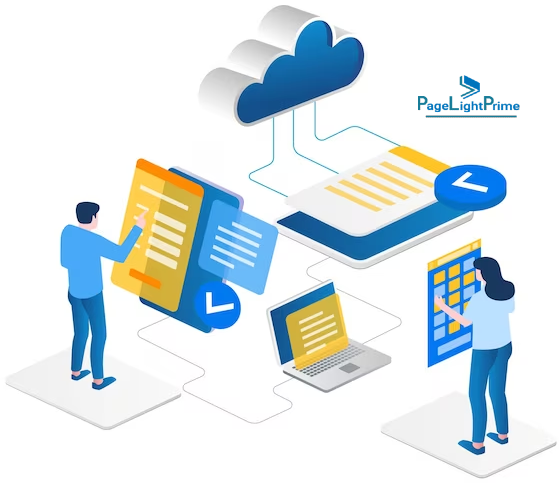
AI-Powered Estate Planning Advisors
Artificial Intelligence (AI) is making waves in the legal industry, and estate planning is no exception. AI-powered estate planning advisors can analyze vast amounts of data to provide personalized recommendations. Platforms must consider various factors such as tax implications, legal requirements, and individual preferences to optimize the estate planning process. However, it’s crucial to discuss potential ethical considerations or challenges associated with relying solely on AI for such important decisions.
Secure Digital Vaults
Storing important legal documents in a secure manner is crucial for estate planning. Legal technology introduces digital vaults that employ advanced encryption methods like end-to-end encryption and blockchain immutability to safeguard sensitive information. Popular and trustworthy digital vault services provide a centralized location for storing wills, property deeds, and other pertinent documents, ensuring accessibility to authorized individuals when needed.
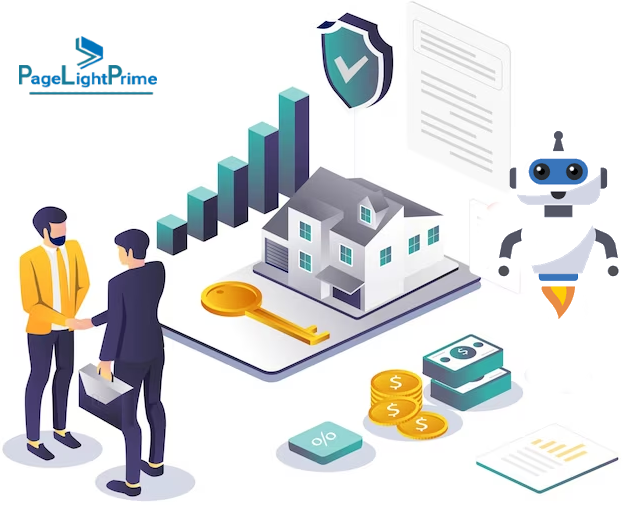
Smart Contracts for Probate Automation
Smart contracts, based on blockchain technology, can automate the probate process. These self-executing contracts contain the terms and conditions of a will, and when predefined conditions are met (such as the passing of an individual), the smart contract can automatically execute, facilitating a more efficient and timely distribution of assets. It’s important to clarify how individuals can ensure the legal validity of smart contracts in their jurisdiction and discuss any legal or regulatory challenges related to their adoption.
Online Estate Planning Collaboration
Legal technology facilitates collaborative estate planning by allowing multiple parties to contribute to the process online. Families and legal professionals can work together in real-time, making necessary adjustments and ensuring that everyone involved is on the same page. This collaborative approach enhances communication and reduces the likelihood of misunderstandings. Emphasizing the importance of cybersecurity and privacy in online collaboration tools will address potential reader concerns.

Machine Learning for Tax Optimization
Estate planning often involves complex tax considerations. Machine learning algorithms can analyze tax laws and financial data to provide insights into tax optimization strategies. Software solutions offer specific examples of tax optimization strategies that machine learning algorithms can help identify. Highlighting ongoing advancements in machine learning within the legal sector will keep readers informed about updates that may impact their estate planning decisions.

Introducing PageLightPrime
Before delving into the conclusion, it’s worth noting the emergence of cutting-edge Wills and Estate Planning Law Software. Let’s explore how the features of PageLightPrime, a Legal Practice Management Solution built on Microsoft 365, can specifically assist with estate planning:
Document Management
PageLightPrime provides a robust legal document management system within the Microsoft 365 environment. This allows users to securely store and organize crucial estate planning documents such as wills, trusts, and property deeds.
Collaboration Tools
The collaborative features of PageLightPrime enable seamless communication and coordination among family members, legal professionals, and other stakeholders involved in the estate planning process. Real-time collaboration ensures that everyone stays informed and aligned.
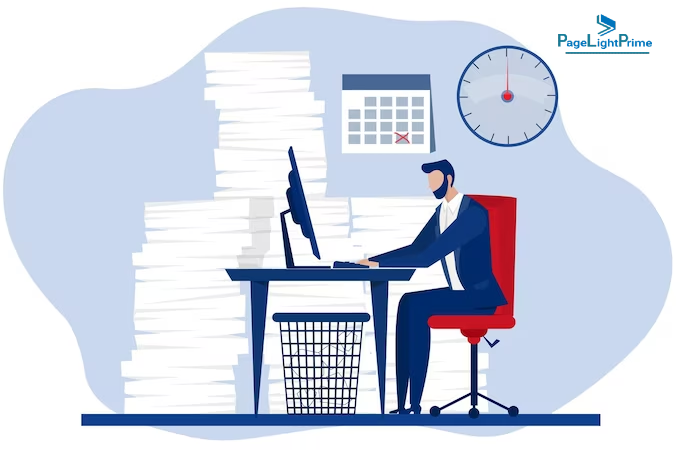
Security and Compliance
Security is paramount in estate planning. PageLightPrime leverages the security features of Microsoft 365, ensuring end-to-end encryption, access controls, and compliance with industry regulations. This helps maintain the confidentiality and integrity of sensitive information.
Integration with Microsoft 365 Applications
PageLightPrime integrates seamlessly with various Microsoft 365 applications, providing a familiar and cohesive environment for users. This integration enhances efficiency by allowing users to work with tools like Word, Excel, and Outlook directly within the platform.

Task Management and Workflow Automation
Estate planning involves a series of tasks and workflows. PageLightPrime includes task management tools and workflow automation features that help users stay organized and ensure that critical steps in the estate planning process are not overlooked.
Client Portal
PageLightPrime offers a law firm client portal that enhances communication between legal professionals and their clients. Clients can securely access relevant documents, track the progress of the estate planning process, and communicate with their legal representatives through the portal.
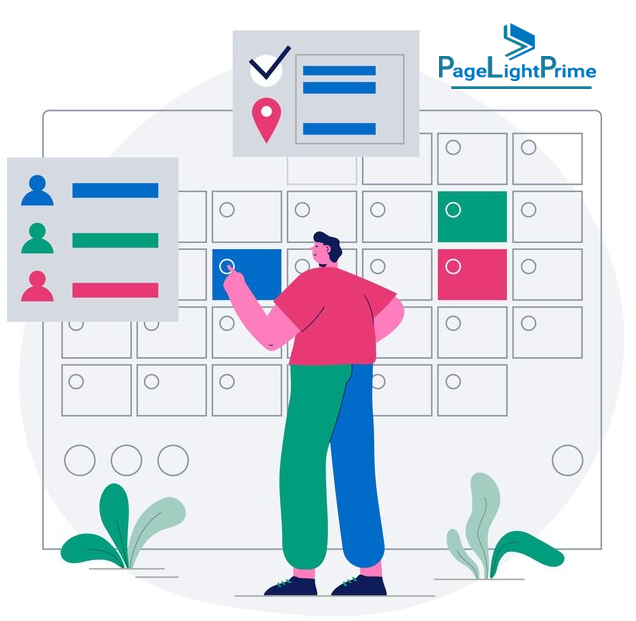
Audit Trail
To ensure transparency and accountability, PageLightPrime includes an audit trail feature. This feature logs all user activities within the platform, providing a comprehensive record of changes made to documents, communications, and other aspects of the estate planning process.
Machine Learning Insights
PageLightPrime leverages machine learning algorithms to provide insights into tax optimization strategies. By analyzing tax laws and financial data, the platform assists users in structuring their estates in a way that minimizes tax liabilities, ensuring a more informed decision-making process.
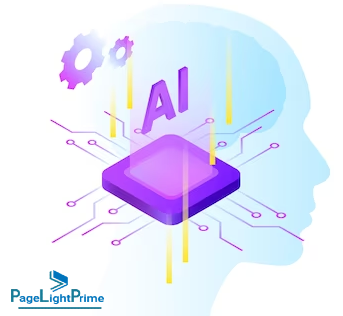
Smart Contracts Integration
PageLightPrime can integrate with smart contracts based on blockchain technology for automated probate processes. This integration ensures that the terms and conditions of a will are executed efficiently when predefined conditions are met.
Training and Support
Estate planning professionals using PageLightPrime benefit from training resources and ongoing support. This ensures that users can maximize the potential of the platform and stay updated on the latest features and best practices in estate planning.
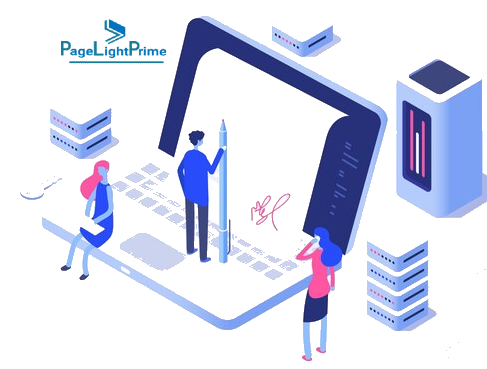
PageLightPrime offers a comprehensive suite of features tailored for estate planning within the familiar and secure Microsoft 365 legal practice management software. From document management to collaboration tools, security features, and integration with advanced technologies, PageLightPrime is designed to enhance efficiency and effectiveness in the estate planning process. Users can leverage these features to navigate the complexities of property planning with confidence and ease.
Conclusion
Legal technology is reshaping the landscape of estate planning, making it more accessible, efficient, and secure for individuals and families. By leveraging digital tools, blockchain, AI, and collaborative platforms, people can navigate the complexities of property planning with greater ease and confidence. As technology continues to advance, the future of estate planning holds even more promise for a streamlined and personalized experience. Stay informed about emerging technologies and trends, and explore reputable services and platforms, such as PageLightPrime, to make the most of these innovations in your estate planning journey.
